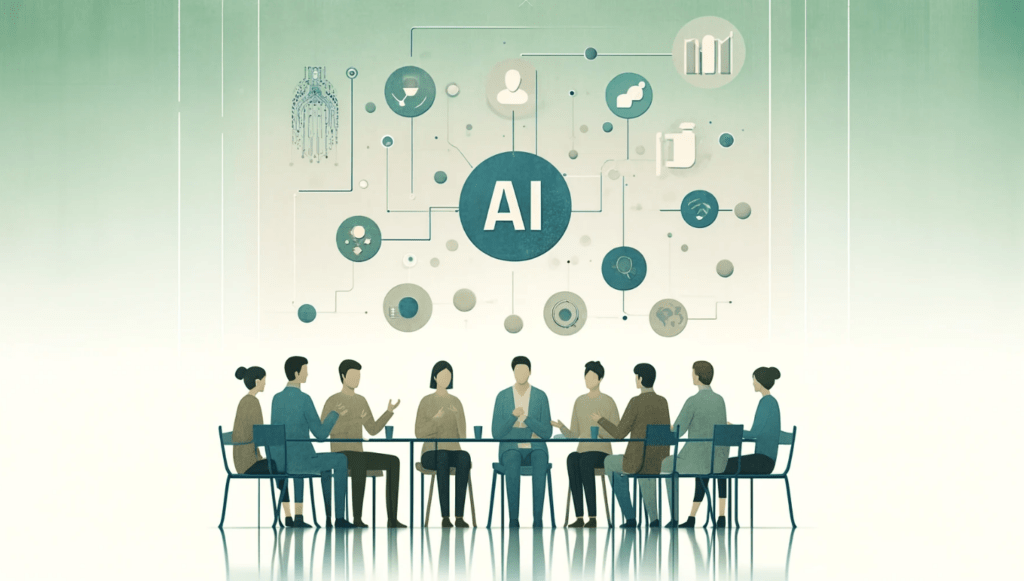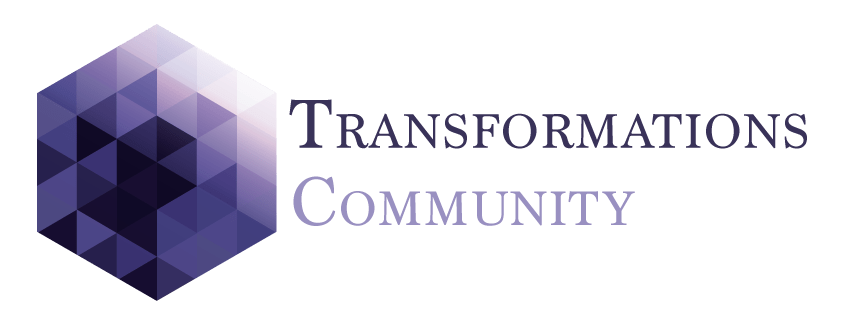In April 2024, the Transformations Community (TC) hosted two online launch events for its new AI project. This initiative explores the potential of artificial intelligence (AI) to support sustainability transformations and tackle global challenges. The project’s core objective is to cultivate a collaborative community centered on participatory co-design in sustainability AI. It aims to explore useful AI tools, real-world applications, and the broader implications of AI in driving sustainability transformations.
Setting the Stage
Bruce Goldstein, the lead weaver at TC, introduced the discussion by highlighting TC’s decade-long history of organizing impactful conferences. He emphasized the community’s commitment to enhancing members’ experiences through activities that complement these conferences. The AI project emerged from this mission—to engage transformations practitioners and researchers in improving their work and amplifying the community’s impact.
“We want to figure out how to navigate AI’s use responsibly,” Goldstein stated. “What are the ethical considerations around AI? What are the potential biases embedded within the technology? And how can we ensure that this technology serves both our individual and community needs?”
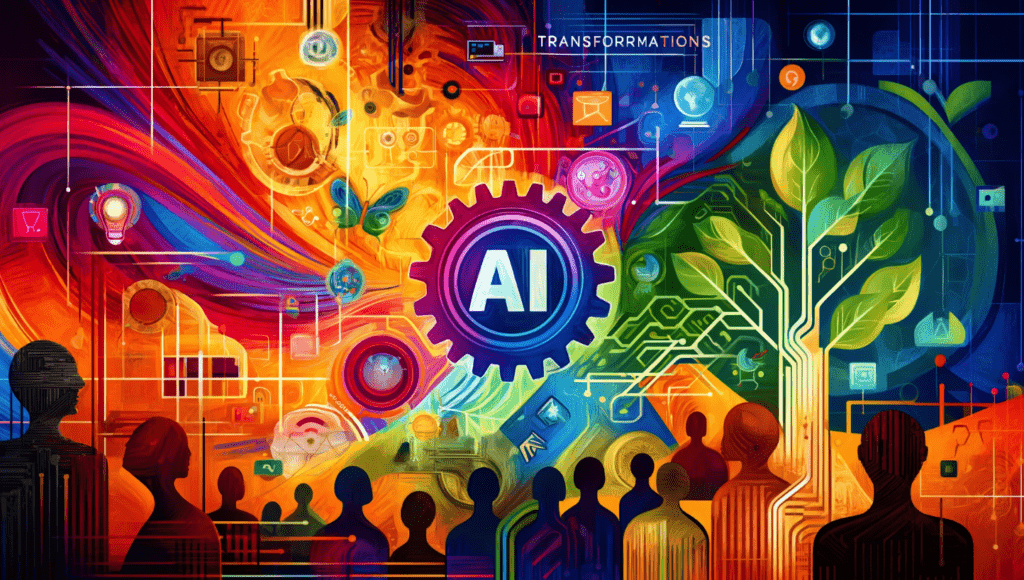
Goldstein underscored TC’s dedication to transdisciplinarity and the value of diverse knowledge practices. However, he noted a critical challenge: AI might not inherently value diverse perspectives and could potentially harm the communities it aims to serve. Therefore, the project adopts a “critically constructive approach”—scrutinizing both the promises and perils of AI through a participatory lens.
Envisioning AI Applications
Participants speculated on AI’s potential applications across various domains of transformations, unified by the question: How can this powerful technology be harnessed for human and planetary well-being?
- Education: Maina WaGioko, an educator, envisions an AI system that can assess individual needs and provide “responsive holistic” content tailored to diverse learners. Similarly, Sarah Nouraly sees AI as a tool to create personalized educational content aimed at reducing inequalities.
- Agriculture: Kaustubh Kumar seeks AI-powered decision support tools to assist small farmers with cropping and production systems, considering dynamic economic and environmental conditions. Rina Mardiana hopes AI can bridge the gap between scholars and grassroots communities, making academic insights more accessible to farmers.
- Connectivity and Data Synthesis: Participants like Sebastian Stjärna and Niels van der Linden view AI as a connective force, linking disparate sustainability initiatives across sectors and regions. Stjärna describes an “AI network of networks” that could catalyze collaborative work by synthesizing complex data to guide decisions around product emissions and supply chains.
- Participatory AI and Community Mapping: Jesús M. Siqueiros-Garcia advocates for “participatory AI” to amplify voices and agency in understanding social-ecological systems. Participants highlighted various tools, from academic literature mining platforms like Elicit to community science initiatives like Savanna and resident feedback systems like Neighborly.
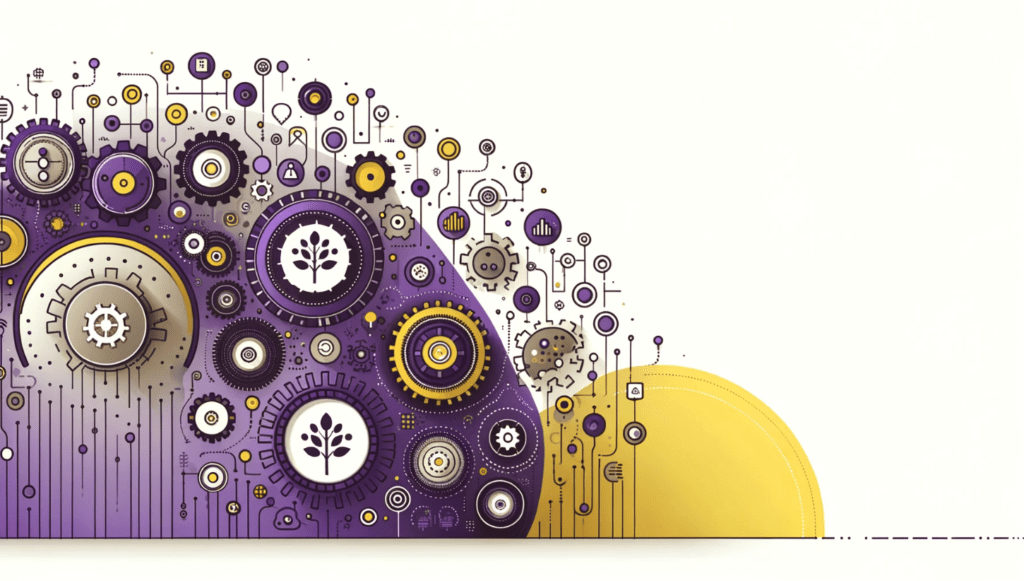
Key Themes
Supporting Decisions with Data:
- Participants expressed a desire to leverage AI for data-driven recommendations across sectors. Niels van der Linden articulated a need for AI to support decision-making with quality knowledge rather than mere opinion. Kaustubh Kumar envisioned tools to assist small-scale farmers in making informed decisions about cropping and production systems.
Mapping Connections:
- The potential of AI to map connections across different fields and initiatives was frequently cited. Thomas Haselböck and Sebastian Stjärna discussed how AI could support efforts to understand and leverage interconnections within ecosystems. Scott Chaplowe highlighted AI’s role in complex systems analysis and diagnostic evaluation.
Modeling Complexity:
- Many participants saw AI’s unique value in modeling and understanding emergent, complex systems. Steve Waddell emphasized AI’s potential in comprehending the emergence of new systems at substantial scales. Jesús M. Siqueiros-Garcia discussed using AI/agent-based modeling to explore social-ecological system dynamics.
Building Trust Through Participatory AI:
- The success of AI applications hinges on developing trustworthy systems aligned with human values. Mariana Zafeiropoulos stressed the challenge of balancing trust and trustworthiness in sociotechnical systems. Andrea Jimenez advocated for designing AI with a social justice lens, emphasizing inclusivity and community-centered governance.
Conclusion and Next Steps
The Transformations Community’s exploration into AI for sustainability is just beginning. Insights from these sessions will shape future dialogues, case studies, tool demonstrations, and more. Upcoming steps include summarizing insights, polling for session topics, recruiting a research coordinator, and launching activities by mid-May. A potential workshop at the Sustainability Research and Innovation Congress in June could further disseminate these perspectives.
Steve Waddell aptly captured the journey ahead: “AI has intimate potential for helping us understand the emergence of complex [sustainable] systems as new connections are forged.” By fostering a community dedicated to responsibly harnessing AI’s power, TC aims to navigate this uncharted territory.
For those interested in getting involved and staying updated, sign up at Transformations Community AI Project. This global community welcomes everyone exploring how to navigate AI’s challenges and opportunities for positive transformation.
With thanks to participants:
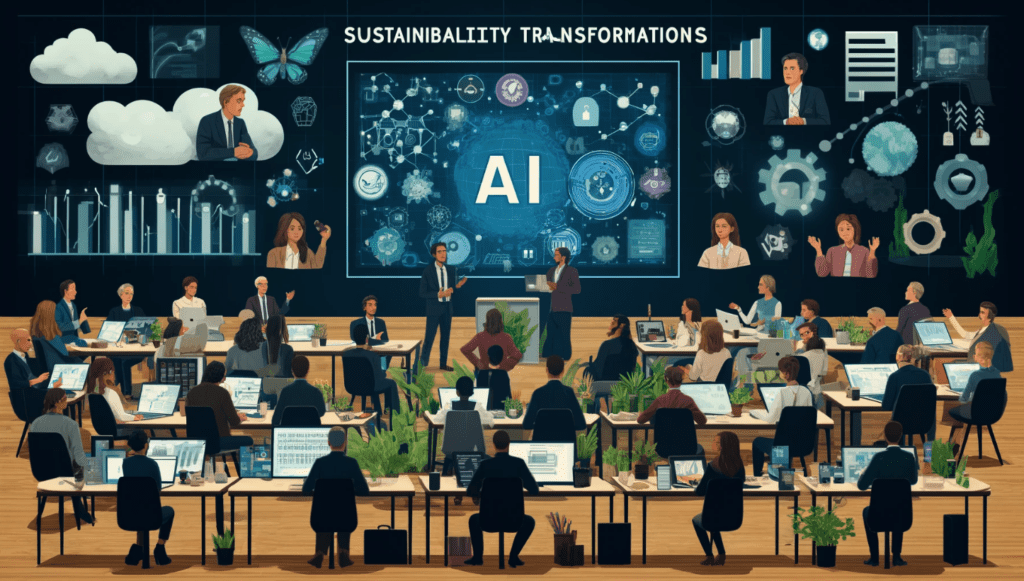
8th April:
Scott Chaplowe, Silva Ferretti, Kaustubh Kumar, Niels van der Linden, Rina Mardiana, J. David Tàbara, Steve Waddell, David Wurster, Mariana Zafeirakopoulos.
TC: Anthony Ten Jet Foei, Bruce Goldstein, Alex Tingiris, Monta Martinsone, Thomas Haselbock
10th April:
Sarah Nouraly, Karina Benessaiah, Justus Wachs, Linda Kenny-Rombough, Tracey Benson, Andrea Grant, Sebastian Stjärna, Weronika Felcis, Maina WaGioko, Chidinma Yvonne Iro, Andrea Jimenez, Glory Dee Romo, Yulina Safitri, Cas, Jesús Mario Siqueiros, Stan Deetz, Robert Monaco.
TC: Anthony Ten Jet Foei, Bruce Goldstein, Alex Tingiris, Monta Martinsone, Thomas Haselbock
